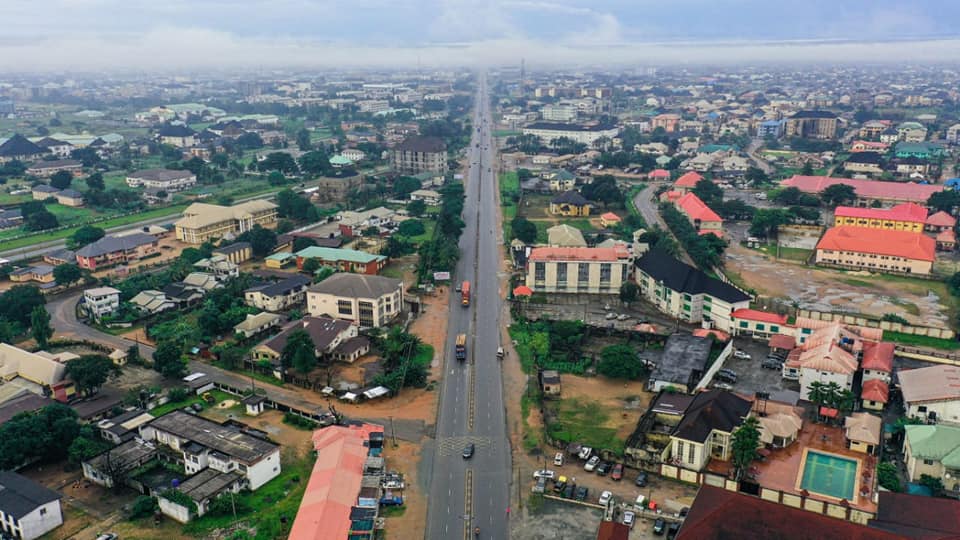
But a friend of hers thought differently, and she asked me share this wisdom with my friend: “If you want to eat Okro soup,” she counseled, “you don’t go diving into the middle!”
I advised my friend accordingly. He thought about it for a while. “They have Okro soup politics here?” he asked me. “So exactly how do they eat Okro soup?”
I told him what I was told: “First, you eat around the plate!”
He didn’t take too kindly to the advice, as he mumbled some indistinct philosophy about desiring to meet Okro with hunger, or something like that.
It did not occur to me at the time to question my interlocutor as to whether the approach to eating Ogbono, Nigeria’s pre-eminent soup that is similar to Okro, was different under that same worldview.
Nonetheless, hearing President Muhammadu Buhari’s pronouncements last week about what lies ahead in Nigeria on the anti-corruption file, it was on those Calabar conversations that I reflected. His administration, he asserted during his visit to the United States, would probe its predecessor, but no other.
On second thought, I accept this approach. Otherwise, where would he begin, and why? He could do an “as-I-was-saying” and return to what he was trying to do in 1985 when he was deposed as military ruler. That would mean starting a maze of probes dating back to 1979 when the National Party of Nigeria he had taken over from actually took office. That would involve at least eight governments. He would be able to raise a lot of money and fill a lot of prisons, but he never have time for much else during his four years.
Or he could choose to start 20 years later, in 1999, when Nigeria returned to civilian rule and the Peoples Democratic Party took control.
Choosing his predecessor-administration—which could have probed its predecessor if it felt corruption was an issue—makes sense: one direct and clear aim at our malfeasance.
But only a fool involved with any of the previous governments would take a deep breath just yet. Remember: the issue is actually about one corrupt country, not one corrupt administration; one long river, not one drop of water.
Corruption in Nigeria is that scalding big bowl of Okro soup. You cannot eat all of it anyway, no matter how hungry you think you are. And you go digging too deeply too quickly at the risk of getting fried or lost. You must patiently eat around the edges of the soup, and wait for the goodies to come into view.
But the anti-corruption war must have a clear form and structure. At the moment, such “Happy Hour” anti-corruption agencies as the EFCC and ICPC are having a field day randomly inviting and questioning people.
This is not only inefficient; it is dangerous. These agencies have historically been negligent or complicit, offering justice at discount rates in various ways. It is curious, but not surprising, that the EFCC loses key court encounters to Nigeria’s rich and powerful. These agencies cannot suddenly emerge as champions of a New Nigeria without themselves first being reformed or probed.
On various occasions in the past several years, I have commented on how the EFCC has systematically and deliberately ignored its legal annual reporting requirement. In this game of outlaws, the commission has been protected by the National Assembly, which is supposed to receive the report, because of a certain understanding between them not to rock the boat.
The question is whether the EFCC will publish that report when it is due two months from now, and whether it will do for the Nigerian people what it has refused to do in the past seven years: tell the truth, the whole truth and nothing but the truth.
In the first few years, the EFCC was not afraid of this challenge. In fact, it proudly posted on its home page the following badge of honour: “The Commission is under obligation by law to make a comprehensive report of its activities to the National Assembly, not later than the 30th of September every year.
“The EFCC Annual Report presented yearly to the National Assembly, is a compendium of all activities of all units of the Commission including Operations, Administration, Legal & Prosecution, Media, Accounts, Training School, etc. The Commission is not under obligation to publish it, but having been presented to the National Assembly, members of the public may be apprised of its contents by their elected representatives or seek to obtain copies by laid down procedures of the Senate and House of Representatives.”
That was swiftly taken down when Farida Waziri took over the leadership of the commission, and nobody has had the courage to put it back ever since.
The point is this: fighting corruption is a bruising business, and it is only productive if undertaken in the open, with the ownership and participation of the public. The EFCC, like the previous government, which for obvious reasons protected its duplicity, ignored this component. Public petitions, which went to them were generally ignored, thereby frustrating the public from sending more complaints.
President Buhari can boost his anti-campaign offensive by covering this loophole, by providing protection for whistleblowers, and by making his government and its agencies inescapably accountable.
In addition to investigating the past, and to the changes that must be made in Nigeria’s anti-corruption firmament, the offensive must also focus on the future. Among others, one of the things President Buhari must look at is a law that would establish an Ombudsman, funded directly by the National Assembly
In some countries, the Ombudsman or Public Protector is a constitutional office, which can investigate a public complaint, or—on its own—any government or government agency.
For now, Nigerians await an exhaustive investigation of our immediate past, which is a tapestry that has been woven through, and is tied to our more distant history.
Let us investigate our oil and allied resources, and who did what to them today. They are related to the same persons who did similar things to our oil and allied resources yesterday, and many of them will be exposed.
When I was young, Cadbury used to make a candy it called “Miki-Miki,” which it advertised as the “sweet with magic in the middle!” Like that Okro soup, you had to suck through the outer layer before being rewarded with that outburst of delicious magic.
When you think about it, it is the government that has always eaten our Okro soup; for the first time, it is about to cook a big pot.






